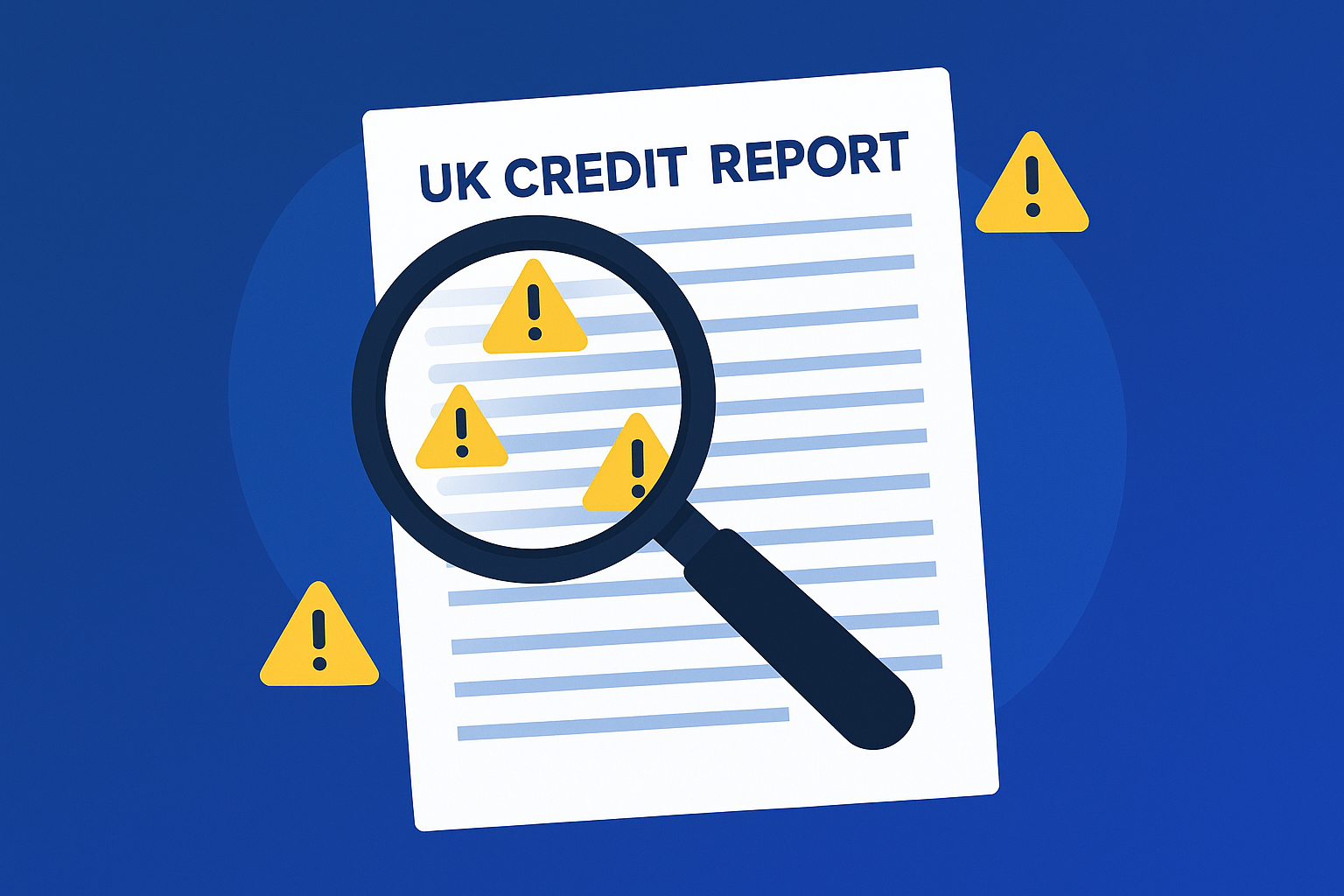The 4-Step Credit Transformation System
This is the exact same system developed by former banking insider David Richardson and used by over 15,000 UK residents.
Insider Secret: These are the same strategies that credit repair companies charge £2,000-£5,000 for, but you're getting the complete system for just £47.
Discover Hidden Errors
Use our proprietary UK credit report analysis system to uncover the errors that are secretly destroying your score. Most people have 3-7 errors they don't even know about.
💡 Proven Result: 87% of UK residents have errors on their credit files
- Complete credit file audit checklist
- Error identification templates
- Priority scoring system for maximum impact

Deploy Legal Challenges
Send our proven letter templates to UK credit agencies using little-known legal loopholes that force them to act within 28 days.
💡 Proven Result: 89% success rate with our FCA-compliant challenge system
- Ready-to-send dispute letter templates
- Legal loophole exploitation strategies
- Follow-up sequence for maximum pressure

Accelerate Score Improvements
Implement our insider tactics that UK lenders actually reward. These are the strategies that credit repair companies charge thousands for.
💡 Proven Result: Average 120-point increase in 60 days
- Credit utilisation optimisation secrets
- Strategic account management techniques
- Lender-specific approval strategies

Maintain & Optimise
Lock in your improvements and continue growing your score with our ongoing optimisation strategies. This ensures your credit score keeps climbing month after month.
💡 Proven Result: Lifetime system keeps your credit score climbing
- Monthly maintenance checklist
- Advanced optimisation techniques
- Future-proofing strategies

Ready to Transform Your Credit Score?
Join the thousands of UK residents who've already unlocked their credit comeback with David Richardson's proven insider system.
Get Instant Access Now £99 £4760-day money-back guarantee • Instant digital download • UK legal compliance assured
